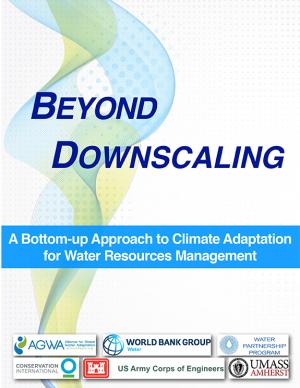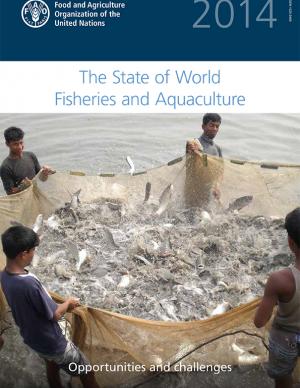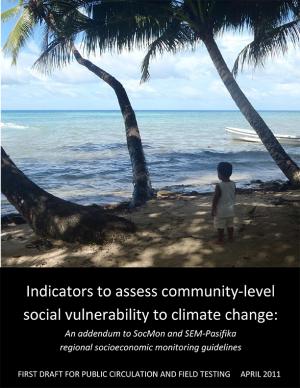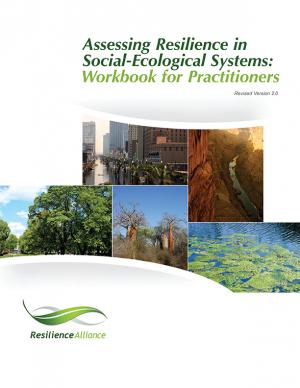Access a range of climate-related reports issued by government agencies and scientific organizations. Browse the reports listed below, or filter by scope, content, or focus in the boxes above. To expand your results, click the Clear Filters link.
The Working Group II contribution to the IPCC Sixth Assessment Report assesses the impacts of climate change, looking at ecosystems, biodiversity, and human communities at global and regional levels. It also reviews vulnerabilities and the capacities and limits of the natural world and human societies to adapt to climate change.
This is the FY22 edition of the U.S. Gllobal Change Research Program's annual report to Congress mandated by the the Global Change Research Act. The report provides an overview of the Program’s progress in delivering on its strategic goals as well as a summary of agency expenditures under USGCRP’s budget crosscut.
Climate change adds uncertainty to already complex global water challenges. Though no standard method has been adopted yet by the World Bank, common practice uses downscaled precipitation and temperature projections from Global Climate Models (GCMs) as input to hydrologic models. While this has been useful in some applications, they often give too wide a dispersion of readings to provide useful guidance for site-specific water resources management and infrastructure planning and design. Rather than design for an uncertain situation selected a priori, the so-called “bottom-up” approaches explore the sensitivity of a chosen project to the effects of uncertainties caused by climate change. Supported by the Water Partnership Program, this book summarizes alternatives explored by a group of organizations that belong to the Alliance for Global Water Adaptation (AGWA), to provide practitioners with the tools to adapt to the realities of climate change by following a decision-making process that incorporates bottom-up thinking.
This publication, known by the acronym SOFIA, is released every two years to provide policymakers and civil society with a global view of fisheries and aquaculture and associated policy issues. The 2014 report includes a special study of initial assessments of vulnerabilities to climate change in fisheries and aquaculture. The full archive is available online.
The Intergovernmental Panel on Climate Change (IPCC) Working Group II's contribution to the Fifth Assessment Report (AR5) relates to climate impacts, adaptation, and vulnerability. A Summary for Policymakers and the underlying scientific and technical assessment are also available.
This report provides a risk-based approach to achieve resilient water security in a changing climate, documents key trends, and highlights best practice from the Organization for Economic Cooperation and Development (OECD) Survey of Policies on Water and Climate Change Adaptation. The report examines options to improve the flexibility of water governance, policy, and financing approaches.
This guide is targeted towards program managers who work in climate change and health adaptation, and provides them with practical information and concrete guidance to mainstream gender throughout all four phases of the project cycle: identification, formulation and design, implementation, and monitoring and evaluation.
Extreme weather and climate events, interacting with exposed and vulnerable human and natural systems, can lead to disasters. This Special Report explores the challenge of understanding and managing the risks of climate extremes to advance climate change adaptation. Some types of extreme weather and climate events have increased in frequency or magnitude, but populations and assets at risk have also increased, with consequences for disaster risk. Opportunities for managing risks of weather- and climate-related disasters exist or can be developed at any scale, local to international.
The purpose of this guide—an addendum to regional socioeconomic monitoring guidelines produced by the Global Socioeconomic Monitoring Initiative for Coastal Management (SocMon) and its Pacific counterpart, SEM‐Pasifika—is to provide a minimum set of socioeconomic indicators related to climate change. The aim of these programs is to improve site management of coastal and marine areas by providing simple, user‐friendly guidelines on how to conduct a socioeconomic assessment, which helps coastal managers incorporate community views into adaptive management of marine resources.
The workbook for practitioners uses strategic questions and activities to assess resilience in social-ecological systems. The approach involves constructing a conceptual model of a system that includes resources, stakeholders, and institutions, and identifies potential thresholds between alternative systems states in order to provide insight into factors that build or erode a system's resilience. A resilience assessment can help with developing strategies for coping with uncertainty and change.













